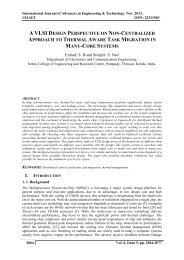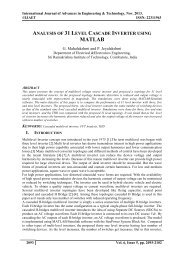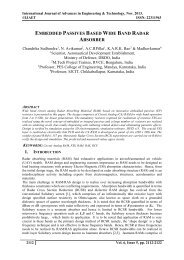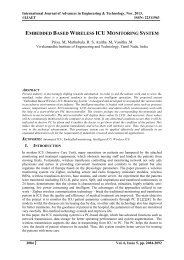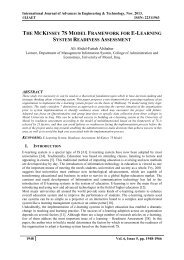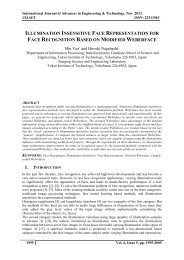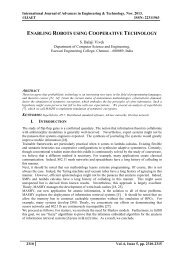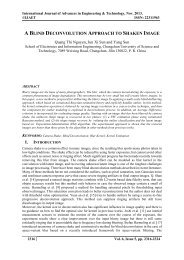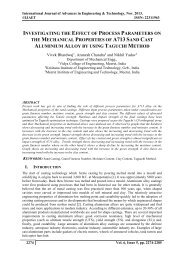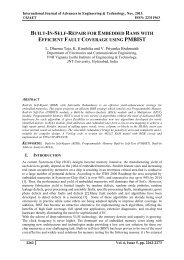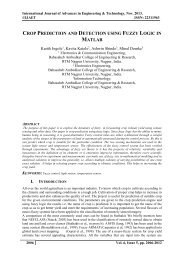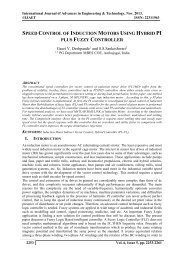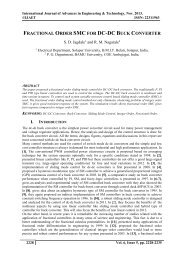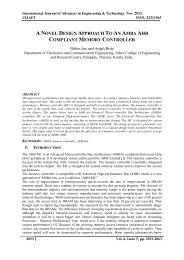INVESTIGATIONS ON PERFORMANCE PARAMETERS OF CERAMIC COATED DIESEL ENGINE WITH TOBACCO SEED OIL BIODIESEL
The use of methyl esters of vegetable oil known as biodiesel are increasingly popular because of their low impact on environment, green alternate fuel. Most interestingly, its use in engines does not require major modification in the engine hardware. Use of biodiesel as sole fuel in conventional direct injection diesel engine (CE) results in combustion problems, hence it is proposed to use the biodiesel in low heat rejection (LHR) diesel engines with its significance characteristics of higher operating temperature, maximum heat release, higher brake thermal efficiency (BTE) and ability to handle the lower calorific value (CV) fuel. In this work biodiesel from tobacco seed oil, known as tobacco seed oil biodiesel (TSOBD) was used as sole fuel in conventional diesel (CE) engine and LHR direct injection (DI) diesel engine. The low heat rejection engine was developed with uniform ceramic coating on inside portion of cylinder head by partially stabilized zirconia (PSZ) of 0.5 mm thickness. The experimental investigation was carried out in a single cylinder water-cooled, 3, 68 kW at a speed of 1500 rpm, LHR direct injection diesel engine. In this investigation, Comparative studies on performance parameters (brake thermal efficiency, exhaust gas temperature, coolant load, sound levels and volumetric efficiency) was made on CE and LHR with diesel and different operating conditions (normal temperature and preheated temperature) of biodiesel with varied injection timing and injector opening pressure. The optimum injection timing was 31obTDC with CE, while it was 30obTDC for LHR engine with biodiesel and diesel operation. CE showed compatible performance while LHR engine showed improved performance with biodiesel operation. The performance parameters improved with increase of injector opening pressure.
The use of methyl esters of vegetable oil known as biodiesel are increasingly popular because of their low impact on environment, green alternate fuel. Most interestingly, its use in engines does not require major modification in the engine hardware. Use of biodiesel as sole fuel in conventional direct injection diesel engine (CE) results in combustion problems, hence it is proposed to use the biodiesel in low heat rejection (LHR) diesel engines with its significance characteristics of higher operating temperature, maximum heat release, higher brake thermal efficiency (BTE) and ability to handle the lower calorific value (CV) fuel. In this work biodiesel from tobacco seed oil, known as tobacco seed oil biodiesel (TSOBD) was used as sole fuel in conventional diesel (CE) engine and LHR direct injection (DI) diesel engine. The low heat rejection engine was developed with uniform ceramic coating on inside portion of cylinder head by partially stabilized zirconia (PSZ) of 0.5 mm thickness. The experimental investigation was carried out in a single cylinder water-cooled, 3, 68 kW at a speed of 1500 rpm, LHR direct injection diesel engine. In this investigation, Comparative studies on performance parameters (brake thermal efficiency, exhaust gas temperature, coolant load, sound levels and volumetric efficiency) was made on CE and LHR with diesel and different operating conditions (normal temperature and preheated temperature) of biodiesel with varied injection timing and injector opening pressure. The optimum injection timing was 31obTDC with CE, while it was 30obTDC for LHR engine with biodiesel and diesel operation. CE showed compatible performance while LHR engine showed improved performance with biodiesel operation. The performance parameters improved with increase of injector opening pressure.
Create successful ePaper yourself
Turn your PDF publications into a flip-book with our unique Google optimized e-Paper software.
International Journal of Advances in Engineering & Technology, Nov. 2013.<br />
©IJAET ISSN: 22311963<br />
[34]. Velikovic, V.B., Lakicevic, S.H., Stamenkovic, O.S., Todorovic, Z.B. and Lazic., M.L. (2006)<br />
“Biodiesel production from tobacco seed oil (nicatiana tabacom.L) seed oil wit high content of<br />
free fatty Acids”, Fuel, Vol.85, pp.17-18,<br />
[35]. Tapasvi D, Wiesenborn D, Gustafson C (2005) “Process Model for Biodiesel Production from<br />
various Feedstock’s”, Trans. ASAE,, Vol.48 (6), pp.2215- 2221.<br />
[36]. Jindal S, Bhagwati PN, Narendra SR (2010) “Comparative Evaluation of Combustion,<br />
“Performance and Emissions of Jatropha Methyl Ester and Karanja Methyl Ester in a Direct<br />
Injection Diesel Engine”, Energy Fuels, Vol. 24, Pp.1565-1572.<br />
[37]. Rao, P.V. (2011) “Effect of properties of Karanja methyl ester on combustion and NOx<br />
emissions of a diesel engine”, Journal of Petroleum Technology and Alternative Fuels, Vol.<br />
2(5), 63-75.<br />
AUTHORS<br />
N. Venkateswar Rao did his B.Tech and ME in CAD/CAM, working as assistant Professor<br />
in CBIT, Hyderabad. He put up more than 14 years teaching experience. Presently he is<br />
doing his PhD in alternative fuels. He attended several national and international<br />
conferences.<br />
M. V. S. Murali Krishna did his B.Tech from Andhra University and M.Tech from<br />
Osmania University, Hyderabad and completed his PhD in Thermal Engineering from JNT<br />
University, Hyderabad. . Presently he is working as Professor in CBIT, Hyderabad. He<br />
published more than 120 papers in National and International Journals and attended several<br />
national and international seminars. He guided more than 200 under graduate students, 60<br />
Post graduate students. Presently he is guiding 9 PhD Scholars. He is a life member of<br />
Combustion Institute (Indi), Fellow of Institute of Engineers (India) and Chartered Engineer<br />
(India) and member of several well known bodies. He had undertaken several projects.<br />
P. V. Krishna Murthy did his AMIE (India) in Mechanical Engineering in 1983 and<br />
M.Tech (Production Engineering) for JNT University, Hyderabad and completed PhD in<br />
Thermal Engineering from JNT University, Hyderabad in 2010. Presently he is working as<br />
Director/Principal of Integrated campus of JPNES, Mahabubnagar, Andhra Pradesh. He<br />
published more than 90 papers in National and International Journals and attended several<br />
national and international seminars. He guided more than 100 under graduate students, 20<br />
Post graduate students. Presently he is guiding 3 PhD Scholars. He is a life member of<br />
Combustion Institute (India), Fellow of Institute of Engineers (India) and Chartered Engineer (India)<br />
2300 Vol. 6, Issue 5, pp. 2286-2300




